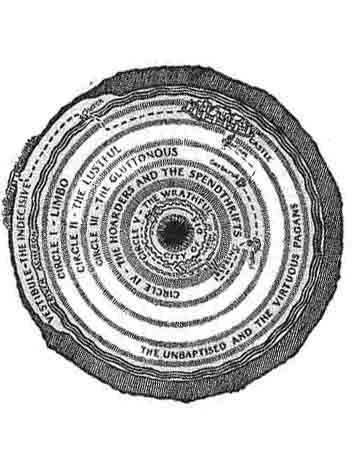
Many of you will recall that the Federal Vision/Auburn Avenue theology flap started a few years ago when the RPCUS, led by Joseph Morecraft III, condemned the theology and those who taught it (including Douglas Wilson, Steve Schlissel, Steve Wilkins, and Steve Schlissel), calling such teachers to repentance. Wilson, in response, has rightly called it a "heresy-trial-on-the-cheap", and humorously ran a parody ad in Agenda/Credenda about the incident of "Craft Morecaroni and Cheese":
...Joe Morecraft made a travesty of biblical justice and judicial procedures. But at the same time, when the person in question is in the position that Joe Morecraft was in, such a response should not be done lightly at all. So when we were condemned as heretics, without evidence cited, without anyone talking to us, and without clear understanding what our actual positions were, the first thing we did was attempt to communicate with Joe privately before our church issued a public response of any kind. Joe flatly refused to work with us on it. Consequently, the only reasonable thing that was left for us to do was to explore the matrix between modern Southern Presbyterianism insta-mix heresy trials and Kraft mac in a box.
This incident got a lot of publicity, for bad reasons. The Federal Vision is a matter that Reformed Christians should debate and respond to, and the theological issues are important. I hope that
proper debate and ecclesiastical judgment over the issue will get more publicity and eclipse the RPCUS flap for the edification of God's people and the preservation of sound doctrine.
Toward that end, the OPC has erected a study committee to critique the Federal Vision. After two years of labor, they have completed a
report (hat tip to ReformedCatholicism.com) that will be submitted for adoption at this June's General Assembly. It does not rule on anyone's defrocking or excommunication, but does recommend that ordination candidates be tested for fidelity to the Westminster Standards contra some of the Federal Vision positions. The report concludes:
The committee believes that the following
points that are held by some one or the other advocates of FV are out of accord with Scripture and our doctrinal standards:
1. Pitting Scripture and Confession against each other.
2. Regarding the enterprise of systematic theology as inherently rationalistic.
3. A mono-covenantalism that sees one covenant, originating in the intra-trinitarian fellowship, into which man is invited, thus flattening the concept of covenant and denying the distinction between the covenant of works and the covenant of grace.
4. Election as primarily corporate and eclipsed by covenant.
5. Seeing covenant as only conditional.
6. A denial of the covenant of works and of the fact that Adam was in a relationship with God that was legal as well as filial.
7. A denial of a covenant of grace distinct from the covenant of works.
8. A denial that the law given in Eden is the same as that more fully published at Mt. Sinai and that it re-quires perfect obedience.
9. Viewing righteousness as relational not moral.
10. A failure to make clear the difference between our faith and Christ’s.
11. A denial of the imputation of the active obedience of Christ in our justification.
12. Defining justification exclusively as the forgiveness of sins.
13. The reduction of justification to Gentile inclusion.
14. Including works (by use of “faithfulness,” “obedience,” etc.) in the very definition of faith.
15. Failing to affirm an infallible perseverance and the indefectibility of grace.
16. Teaching baptismal regeneration.
17. Denying the validity of the concept of the invisible church.
18. A overly-objectified sacramental efficacy that downplays the need for faith and that tends toward an ex opere operato view of the sacraments.
19. Teaching paedocommunion.
20. Ecclesiology that eclipses and swallows up soteriology.

I agree with David Bayly on this matter:
Whether "Federal Vision" theology is cohesive enough or sufficiently heterodox to require such opposition we're uncertain. What is certain is that God's truth prospers in the light, not in smoke-filled rooms and alleyways.
I believe that many of the criticisms this Report makes are sound, and hopefully this will indeed shed light on the truth. For those with the courage, fortitude, and caffeine sustenance to wade through 91 pages of presbyterian polity and doctrinal jargon, I commend our audience to reading the whole Report. The main weakness is that I doubt that some, especially moderates like Wilson, would raise their hand and say that they affirm any of the 20 listed views. The lack of specificity may hinder the effectiveness of enforcing the Report's criticisms. Only the views of the more radical elements, such as James Jordan, Mark Hornes, and Rich Lusk (who are not OPC themselves), are liable to get swept up. I'm a URC guy, so I don't know much about the OPC world on a personal basis, but I doubt that the OPC will be rent apart by the adoption of the Report.
My beloved URC has made some moves at synod that generally go against some facets of the Federal Vision (specifically against paedocommunion), and one of the FV proponents, John Barach, has now left our federation for the CREC. On the PCA side, there is an overture for this year's General Assembly to erect a similar study committee on FV, and one presbytery has requested that Steve Wilkins' exoneration by his presbytery be reviewed. For further reading:
1. The Louisiana Presbytery Report exonerating, with some qualifications and concerns, Steve Wilkins.
2. The Mississippi Valley Presbytery Report condemning, generally, FV theology.
3. Calvin Beisner & Co.'s response to the Louisiana Report, detailing more specific criticisms of Wilkins' teaching. This specificity is very helpful.
4. The Auburn Avenue Theology, Pros and Cons. This is the book that educated me on these matters, and was a good first step in having a Christ-honoring debate over FV.
So, after all of this heady theology stuff, who's hungry?
 P.S. - I have no clue who that guy is. The things you find w/ a google search!
P.S. - I have no clue who that guy is. The things you find w/ a google search!
Category: Theoblogia
Read more!








 P.S. - I have no clue who that guy is. The things you find w/ a google search!
P.S. - I have no clue who that guy is. The things you find w/ a google search!


